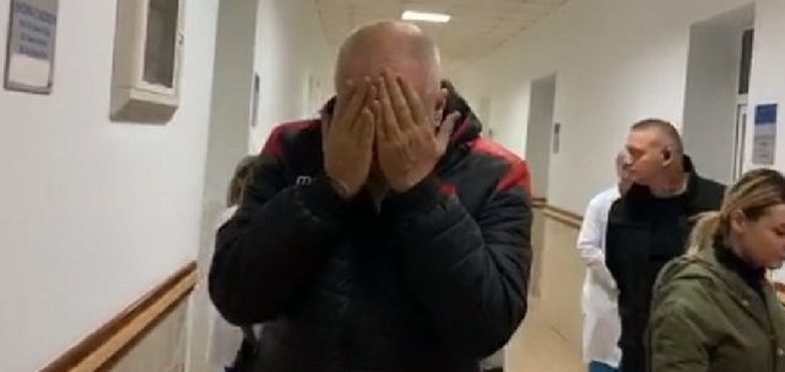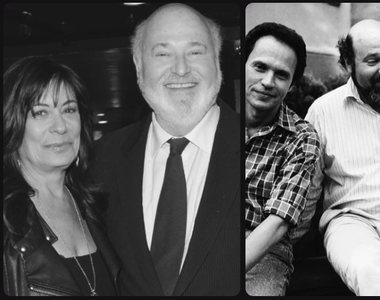
I'm sure from just reading the title, you have alluded to "What is this protecting the state for?" I would think the same thing if I saw this title everywhere. But getting involved in this crisis as a media, as an individual, and as a direct influence, made me think that we need to rebuild a relationship with the state. The less we continue to trust it, the more the state will deteriorate.
1. It is normal not to trust the state
At Anabel.al we conducted a survey asking ?Where do you believe most will find help during difficult times? ?68% responded that they trusted their financial assets, 24% trusted non-governmental organizations / charities; 4% trust the media and only 3% trust the state. So the vast majority of Albanians believe first in their savings and investments and then in Arber Hajdari, Elvis Naci or NGOs like Red Cross etc. The percentage of those who believe in the state is terribly small, almost negligible. But this is not a surprise. Neither for us nor for more developed countries. Even in a 2018 UK poll, though the figures were higher for those you believe in, again, the state was last seen as a "bailout." Even if we were to conduct this poll in the States In the United States or in France, we would have almost the same order of trust: Personal Finance, NGOs, the Media and the State. So low is confidence in governments even in more developed democracies, that after the 2008 financial crisis, many economists began to study the case of the Nordic countries that easily and successfully overcome this crisis. Everyone was wondering what Norway, Findland, Sweden, which has no neighbors, and the answer of Dagfinn Hoybraten, secretary general of the Nordic Inter-ministerial Council, has confidence in politicians. "Nordic citizens have shown that they have a much higher degree of trust in each other, in politics, in government, in the legal system than in the rest of the world."
That being said, I am not delusional to think that our state is comparable to the UK, US or France, but it is important to first understand that our attitude towards the state is not isolated, but lack of trust accompanies the peoples of the more developed democracies, where we have emigrated or want to emigrate. Only with one very fundamental change: The percentage of our confidence in the state is much lower, and I am not in a hurry to say much more alarming than in other countries' polls.
2. Help me, help you
Our almost severed relationship with the state was also witnessed during the tragedy of November 26th. I have been in contact with people affected by the tragedy almost all the time, whether on the ground or on Anabel's social networks. Our inbox (and I'm sure of almost all major portals) broke the record for the number of communications in these 10 years of activity. Of course, it didn't help that the state, for at least the first 30 hours, was not "summing up" to create a headquarters, a system of guidance on where people would turn to for help or assistance. But despite the fact that people terrified by the lack of state many times, did not even count, even when the state was there. What struck me, most affected by the tragedy, was their refusal to cooperate or lack of understanding. Many wrote to us after 24 hours of the tragedy that "the state is stinky that we are not worth it" without realizing that our state does not have the assets to extract corpses, to shelter, to register and evaluate all damaged housing within 24-48 hours. 90% of the countries in the world do not have it. This is not to say that it will not appreciate. Just a little patience, we calmed down in the inbox. Another phenomenon of non-cooperation was that of the injured who sought tents in front of their houses or palaces. I'm not talking about mothers with young children and no relatives; I'm talking about families with physically healthy adults, mothers with 25-year-old boys who refused to go to the center to get help or to shelter in tents because they wanted the state to distribute the tents in every home. "We don't move here to steal from us" was the most common reason, but wouldn't the 10,000 others being stolen in camps or in families in Pristina be stolen? How can the state track down tents wherever they want and furthermore set up tents near danger areas? Understanding the trauma, this evidence shows that we need to be mindful of that famous Tom Cruise expression in "Jerry Maguire" when he says "Help me, help you" Help me, help you. Solidarity is required on all sides, where possible.
3. The state will steal if you don't see beyond your doorstep.
A 19th-century French diplomat, Joseph Maistre, sealed the famous phrase, "Every nation deserves its government."
In my opinion, this expression is questionable on a case by case basis, but in the case of Albania, of a democracy where governments come to power by our votes, I am afraid this expression is best applied. The dysfunctional relationship we have with the state can be simplified by an ordinary episode in our palace / neighborhood. If we pay monthly for the elevator and the stairs and stairs are still unclean and the elevator is blocked every week, then what is the value of staying in our homes and screaming "Here the owner steals!" Unless we knock on the door and we ask for an explanation of where our revenue goes and why we do not get the payment service we do, then things will change. If we get organized, things are sure to change even faster. For the last decade mostly, we've been the ones screaming in our homes, disappointed by all the systems in this country; we have seen an autocratic state, a deceitful state, an arrogant state, and we have given up believing. On the other hand, it is us who continue to vote, rarely because we believe and more because we see a personal interest as a job or some extra money at the end of the month. We have more or less created such a situation: An agreement with the owner of the palace that "at least the elevator is accessible to me and I will not complain to the group of residents against you." So in a way we have given the state access to use us, finding our weaknesses as economic poverty. Those who are unused continue to call home and coffee shops complaining that there are no popular protests here. But where will the protests and the demand for the account come from if we do not look beyond our doorstep? We have confused rejection of the state with rejection of Albania, and as such, we have created a great wound that could be healed not by the right man in power, but by a civic conscience for the common good.
4. Believe and control, but believe!
We are moments before the earthquake-ravaged houses are rebuilt. The concern of many is: "Will the state keep its promises?" Residents of the 12-storey Jeda palace in Durres write to me inbox saying "The state is hiding something, as it is safely evaluating a building that does not do well collapsed ?I don't know what to answer because I'm not an engineer. Maybe that palace becomes back again, maybe as engineer Luljeta Bozo said, if iron has no problems, then with a much stronger re-construction, that palace can become habitable. But what is now demanded of citizens is not to write on Facebook and not raise questions in conversations with one another, but to request a state account; believing they will receive the right help. First of all, the state that is guilty of the builder in these great damages has responsibility. Prime Minister Rama does not have to promise the little boy jumping from the 5th floor that I will take him home, but he has to find the right accommodation and guarantee that his school is safe. safe. Starting from Rama and everyone below him, they are clerks. This is what we need to understand. They work for us! With our votes we have hired these people not to "own" Albania, but to manage Albania. So we don't have to fear to claim all our rights to the end. As residents of damaged homes, we need to consider the state and neither the NGOs nor the media nor our assets (when we have already paid for those unsafe homes). Here, I think, an improvement in the relationship with the state and an improvement in governance begin. The moment you see the state as a civil servant and recognize your obligations to you, you begin to demand an account. Residents of the 12-storey JEDAS organized should firstly request an assessment by written, sealed and non-verbal communication, nor by Top Channel microphones, from specialist engineers that the building may be habitable (if it turns out such). Residents will then have to share housing with the state until housing is regulated, measures to be taken against the landlord, clarification of the issue of loans and other matters pertaining to the state, as the regulator. The state becomes valuable when you know it, and if residents are active and well-organized, they are more likely to be compensated for all their damages than if they first renounced "information hiding" or that "the state does not become." What has happened in Albania and penalized us as a people is that we have seen and accepted governments as "proprietors" and have increasingly withdrawn from the accounting requirement. So we have not acted as citizens, but merely as certified citizens who "happen" to live on government property. In this way, by neglecting distrust and retreating, we have allowed politicians to abuse power. Edi Rama's arrogance during these post-earthquake days is evidence of the relationship we have established with him. We have taken it for granted that he is mismanaging and has no hope of changing until he withdraws himself or an opposition party wins the election, and on his part Rama has taken it for granted that he may as well to have done good deeds, again they will not come to light, because no one has faith.
5. Don't ask what place I will do for you, but what you will do for the place
The subtitle is the famous expression of the late US President John F. Kennedy. Today, more than ever we need to hear this. I enjoy learning from any tragedy or failure, and the drama of November 26th should teach us that this country does not rebuild and move forward if we are to wait and wait for the governments and if we fail to give up place. Unless our relationship has changed, no one, not even me or you who is reading and can have 100 dreams and ideals, will not be able to govern well. We wait for him or her to come to this "right" place and forget that we create the disregard for ourselves. I, for many who have reached the end of this writing, may be delirious, may be na ,ve, but as in contact with hundreds of people every day, I am a little tired of the repeated "Where's the State?" Repetitive cry when no one gets up to ask for it, by vote; with protests, with account demands. We quickly forget, and we showed this with 97, when we brought in the same people again in government, we showed it when we voted for former Communists, but I think it's time to forget. The state must punish all the culprits for these great damages that caused 51 casualties and must respond one by one to all the promises, but it is our duty as citizens to hold accountable for all these promises, it is the duty of the citizens shocked to move their cases to the end, if required by legal forms, such as the media's duty to hold the state accountable, but also to make the citizen aware.
I think this is a great time to put some points on it in the citizen-state relationship. Otherwise, pack your suitcase and run away, because whoever comes to office will feel as much of an owner as the other one who left.
Copyright Anabel.al / Reprinting is prohibited without the editor's permission.







